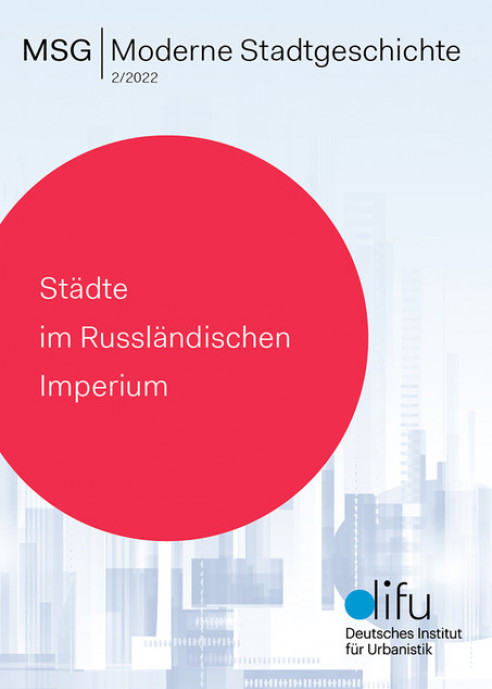Bestätigung, Wissen, Nationalstolz. Funktionen der Erinnerung an das 18. Jahrhundert im imperialen Odessa
DOI:
https://doi.org/10.60684/msg.v53i2.64Schlagworte:
Russländisches Imperium, 19. Jahrhundert, ErinnerungskulturAbstract
The port city of Odesa was one of Catherine II’s most crucial city foundations at the end of the eighteenth century. Its creation was a milestone during the forcible conquest of the northern coast of the Black Sea and the creation of a new dominion - New Russia. Odesa reached the zenith of its development as a global trading metropolis in the mid-nineteenth century, just before the Crimean War abruptly interrupted the rapid boom. This contribution explores how contemporaries (mostly engineers and historians) in Imperial Odesa remembered the past eighteenth century at various stages of the nineteenth century. They contrasted their present, perceived as crisis-ridden, with a past they nostalgically glorified as a golden age. The focus was on the port, the central economic infrastructure of Odesa. The energy of Catherine II, José de Ribas, and Platon Zubov was to serve as a shining example to help Odesa regain its splendor through energetic action. The “eighteenth century” remained an essential discursive point of reference throughout the nineteenth century and a cultural resource that could be appropriated for very different argumentations.
Downloads
Veröffentlicht
Ausgabe
Rubrik
Lizenz
Copyright (c) 2022 Boris Belge

Dieses Werk steht unter der Lizenz Creative Commons Namensnennung 4.0 International.






